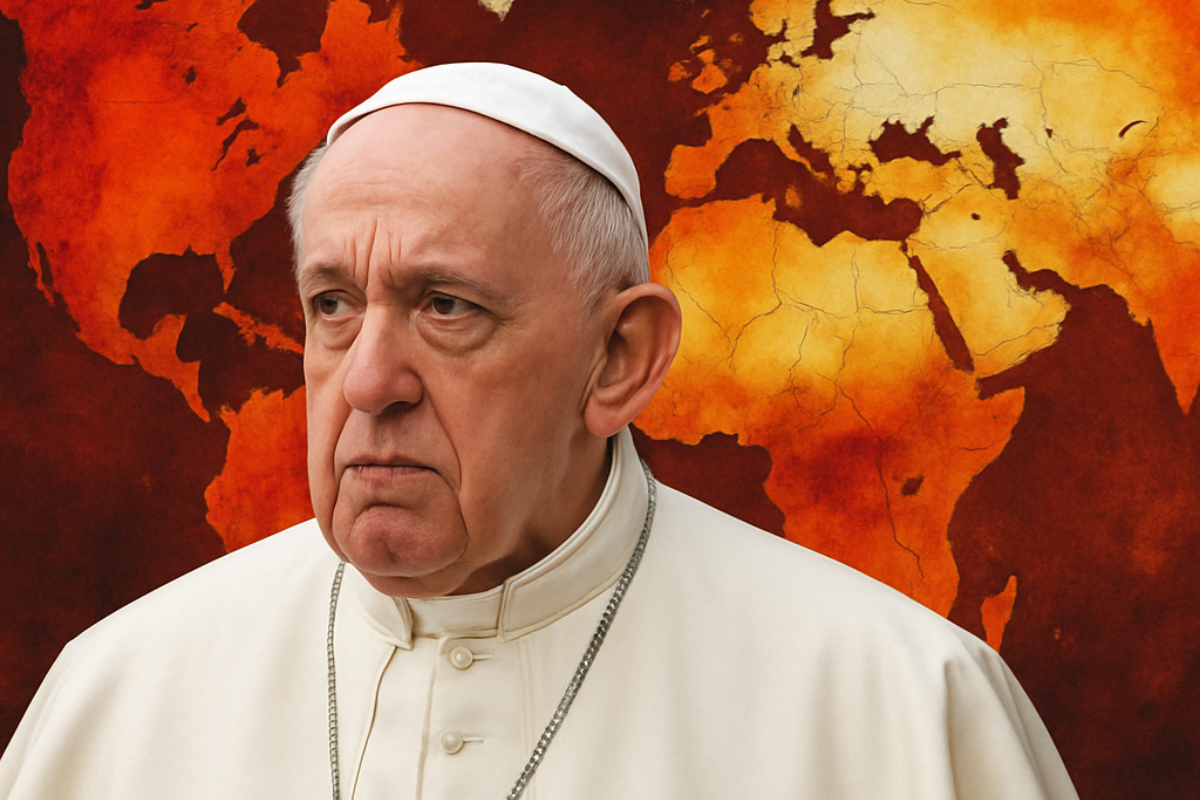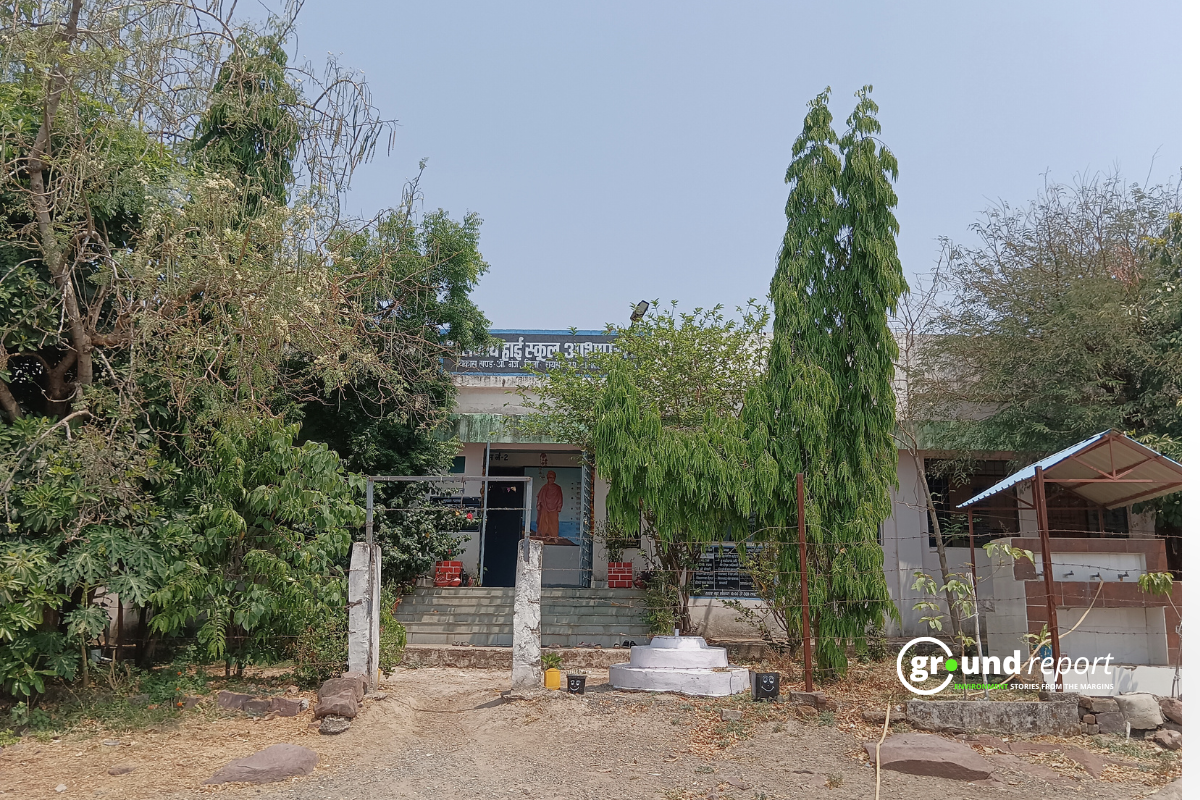Pope Francis, the 88-year-old leader of the Catholic Church, passed away on Easter Monday, April 21, 2025, at his residence in the Vatican’s Casa Santa Marta. His death marks the end of a papacy that reshaped the role of the Pope, emphasising humility, social justice, and reform within the Church.
Francis faced health challenges in recent years, including severe knee problems that affected his mobility. Despite these struggles, he continued to serve the Church with dedication, delegating some duties but remaining active in key ceremonies.
His health further declined with complications from a respiratory illness, leading to his decision to step down. This unprecedented choice reflected his deep commitment to the Church, even as his physical health made it increasingly difficult for him to fulfill his papal duties.
Lifetime of advocacy for environment
A major part of Pope Francis’s legacy is his strong stance on climate change, which he called one of the most urgent challenges of our time. His 2015 encyclical Laudato Si’ warned of the dangers of human-driven climate change.
He said,
“Never have we so hurt and mistreated our common home as we have in the last two hundred years.” The Pope argued that the global crisis required both individual and collective action, urging leaders to address the causes of climate change and protect the planet.
In Laudato Si’, Pope Francis stated that climate change is “mainly a result of human activity”. He called for a global response, pointing out that the most vulnerable people, especially the poor, suffer the worst consequences. He emphasised that tackling climate change is a moral issue and that faith can guide the world toward solutions.
Pope Francis also launched Laudate Deum, an Apostolic Exhortation that continued his work on climate issues. In it, he warned that the world was at a breaking point.
Pope Francis didn’t shy away from pointing fingers at those responsible. He criticized climate change deniers, especially those who refuse to acknowledge the overwhelming scientific consensus on human-caused global warming.
“It is no longer possible to doubt the human—‘anthropic’—origin of climate change,” he stated, urging a collective reckoning with the consequences of unchecked industrialization.
One of Pope Francis’s central messages was that the richest nations, which contribute the most to emissions, bear a greater responsibility for fixing the crisis. He criticized policies that ignore the poor and the most vulnerable, pointing out that they are often the ones who suffer the most from climate disasters.
Caring for environment is a moral obligation
His message was simple but profound: caring for the environment is a moral obligation. “The entire material universe speaks of God’s love,” he said, urging believers to see nature not just as a resource to exploit, but as a reflection of divine care for humanity. The Pope’s call for action was rooted in faith—a faith that sees the protection of the planet and the poor as intrinsically linked.
Even in his declining health, Pope Francis never wavered in his commitment to the environment. As he faced health challenges, including chronic knee problems and a respiratory illness, he made the difficult decision to step back from some of his duties. Yet, he continued to speak out on behalf of those who have no voice in the political arenas where decisions about climate policy are made.
In 2023, he published Laudate Deum, a follow-up to Laudato si’. “The world is crumbling and approaching a point of no return,” he wrote. He criticized political inaction: “There have not been sufficient reactions.”
“There is no doubt,” he continued, “that the impact of climate change will increasingly harm the lives and families of many people.” These harms, he said, will be felt in “health, employment, access to resources, housing, and forced migration.”
He also called out denial: “Let us put an end to the irresponsible mockery that presents global warming as something merely environmental, green, or romantic.”
He urged humanity to repent: “We need to acknowledge our ecological sins, which harm the natural world.”
He demanded action: “We must stop deforestation and limit the use of fossil fuels.”
“Planet is heading for ruin”
On Earth Day 2023, he warned, “The planet is heading for ruin. Our generation has left many riches as an inheritance, but it has not known how to protect the planet nor is it protecting peace.”
In his final years, Pope Francis continued to push for change at major global climate events, such as the COP summits. He was disappointed with the slow progress of international climate agreements and urged leaders to take decisive action, not just for political gain, but for the future of the planet.
As the world mourns the loss of Pope Francis, his legacy in the fight against climate change will endure. His passionate advocacy for the environment has sparked global conversations about sustainability and justice, and his calls for accountability continue to echo in the halls of political power.
Pope Francis’s death serves as a reminder that the fight for climate justice is far from over. It is now up to all of us—governments, communities, and individuals—to honor his vision by taking decisive action to protect our planet. As he once said, “Humanity still has the ability to work together in building our common home… Much can be done.”
In the wake of his passing, we must continue his work, ensuring that the cry of the Earth and the cry of the poor are heard loud and clear, and that we act swiftly and decisively to heal our planet before it is too late.
He also supported practical steps. “The number of vehicles, the consumption of non-renewable energy and the cost of fuel, pollution, and traffic are some of the factors that have an undeniable impact on our common home,” he told the Automobile Club of Italy. In 2024, he received his first electric popemobile.
Through all his messages, his core belief remained: “We are nature.”
Support us to keep independent environmental journalism alive in India.
Keep Reading
‘Forever Chemicals’ found in all the world’s toilet paper
Trump shuts down staff helping families pay heating bills
Full list of words banned by Trump, including ‘Climate Change’
Oil companies seek Trump’s help to fight climate lawsuits & regulations
Follow Ground Report on X, Instagram and Facebook for environmental and underreported stories from the margins. Give us feedback on our email id greport2018@gmail.com.
Don’t forget to Subscribe to our weekly newsletter, Join our community on WhatsApp, and Follow our YouTube Channel






